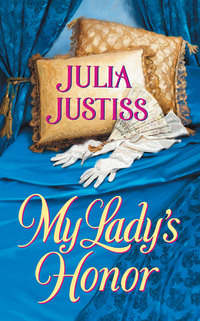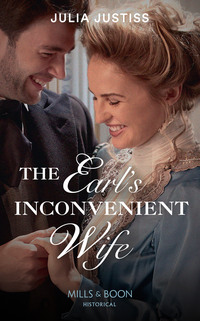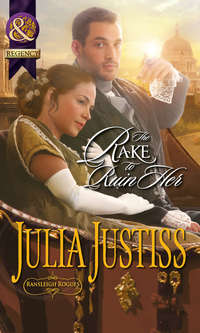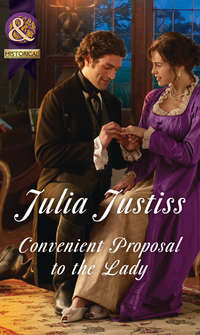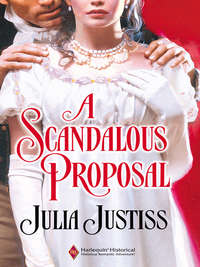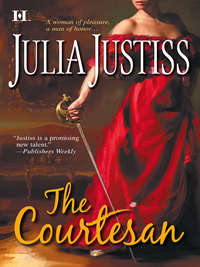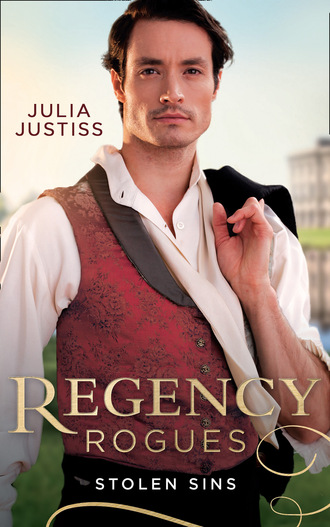
Полная версия
Regency Rogues: Stolen Sins
‘Now that his eldest son has made such a name for himself, and knowing he will one day inherit, isn’t it time for Telbridge to make peace with his heir?’
The dowager shook her head. ‘Randall Hadley was always a proud, unyielding man. I think it was more the satisfaction of winning the woman away from his friend, rather than affection for the lady, that led the earl to wed her in the first place, and he couldn’t tolerate the idea that his wife had been touched by another. It’s only thanks to the good sense of Hadley’s aunt that the successor to the earldom won’t be a complete Hottentot.’
‘So there isn’t much chance of father and son reconciling?’
‘I wouldn’t wager on it,’ the dowager said. ‘The earl is too stubborn; his second son, from what I hear, is so jealous and resentful of the heir he takes every opportunity to speak ill of him to his father. As for the viscount, he will inherit whether they reconcile or not. I would expect he has little desire to approach a man who left him and his mother destitute. Certainly, Telbridge has done nothing in the years since to prompt his son—if the viscount is his son—to seek a reconciliation.’
‘Perhaps,’ Maggie said with a sigh. ‘But it is still sad.’
‘Family squabbles are as old as time. Read your Bible,’ the dowager advised.
‘That doesn’t make them less regrettable.’
‘Indeed. However, if you do intend to…pursue an acquaintance with Giles Hadley, I would do so cautiously.’
‘Why do you say that? Surely you don’t think he’s “dangerous”, as John Proctor warned! Even if he should subscribe to Godwin’s theories on abolishing marriage, I cannot see him forcibly seducing a woman.’ She laughed ruefully. ‘He wouldn’t need to.’
‘I’ve heard nothing of that—rather the opposite, actually. His amours have been few, and the ladies involved were treated with great courtesy. No, it’s just that I’d not like to see a lovers’ triangle descend to the second generation.’
‘Lovers’ triangle?’ Her puzzlement gave way to irritation as she made the connection. ‘That Morning Post article again! Surely you don’t give any credence to newspaper gossip. I have no interest in wedding George Hadley, no matter how much he sidles up to Papa!’
‘Though the writers do expend an inordinate amount of ink speculating about their betters, there is always some thread of truth in the reports. Perhaps George Hadley thinks he’s “sidled up” to your father successfully enough that he’s in a fair way to winning your hand. It would be an excellent match for him.’
‘Well, it wouldn’t be an excellent one for me,’ Maggie retorted with some heat. ‘I don’t like the man, and I’m not so committed to the Tories that I would marry someone for their political advantage. Nor would Papa try to persuade me, no matter how much George Hadley tries to turn him up sweet.’
‘Yes, but that’s not the problem,’ the countess continued patiently. ‘Don’t you see? There is no love lost between the brothers. Isn’t it possible that, having read the newspaper reports as the rest of us have, Giles Hadley might seek you out, just to put a spoke in the wheel of his half-brother’s plans? Now, I’m not saying Hadley turned up in Armsburn’s borough with that in mind. Most likely he was in Chellingham for political reasons of his own, met you by chance, and admires you sincerely—why ever should he not? Given the history between the two, though, I would be cautious.’
For a moment, the thought that Giles Hadley might have approached her with the intent of beguiling her so he could crow to his brother about his conquest made her feel sick. That scenario was too reminiscent of the debacle with Sir Francis.
But an instant later, a deep conviction rose up to refute that scenario. Regardless of his reasons for coming to Chellingham, the attraction between them had been genuine—she was sure of that. Whether or not he would pursue the connection because of his brother’s interest in her, or in spite of it, she didn’t know, but the spark lit between them had not been the product of her imagination.
What she chose to do about it, now that she knew his full background, was still up to her. She was no more interested in becoming the bone of contention snapped over by two pugnacious half-brothers than she was in becoming George Hadley’s prize pullet.
And she definitely didn’t intend to risk falling in love.
‘I will be cautious,’ she promised the dowager as she finished her tea and set the cup back on the tray. ‘That’s why I came to talk to you, Aunt Lilly. You always give such excellent advice.’
‘Advice is about all one has to give at my age,’ her great-aunt said tartly. ‘I’ll let you go with one last bit: don’t let anyone worry you into marrying again, unless you truly wish it. I had several offers after Creighton died, but none could hold a candle to him, and I wouldn’t settle for a lesser man.’
‘That’s how I feel about my Robbie,’ Maggie said, her eyes sheening.
‘Not that I didn’t amuse myself from time to time,’ her great-aunt added.
‘Aunt Lilly!’ Margaret laughed. ‘You’ll make me blush.’
‘As if I could, with all you must overhear, spending so much time around gentlemen! But I worry about you, child. You were inconsolable after losing your husband, and then when it seemed you’d found happiness again, the affair with Sir Francis ended so badly. I would so like to see you passionate about life again.’
‘I enjoy my work with Papa.’
‘I’d have you not just “enjoy” life, but be truly thrilled by it—illumined from within! You know what I mean—I can see it in your eyes. If Giles Hadley offers you the possibility of tasting such joy again, don’t let the dull voice of prudence prevent you from furthering the acquaintance. After all, you cannot find what you won’t risk looking for. Just keep in mind the possible complications.
‘And I intend to end this homily with a recommendation about marriage, and you may as well not protest,’ her great-aunt continued, holding up a hand to forestall any objection. ‘Much as I would oppose you being pushed into marriage, neither would I like you to miss out on the blessing of children. A thought to consider, while you’re still young enough to have them.’
Maggie worked hard not to flinch. That was a fact of which she was too bitterly aware.
Masking her discomfort from her perceptive great-aunt by rising, she said, ‘I must get back. I’ve not been home yet, and Papa has a large party coming for dinner tomorrow night for which I haven’t even begun to prepare. He’ll want a complete account of the Chellingham elections, too. Thank you for tea—and your counsel, Aunt Lilly.’
‘You are always welcome to both.’
As Maggie bent to kiss the dowager’s cheek, her great-aunt reached out to pat hers. ‘I pray for your happiness, child.’
Maggie felt the burn of tears and blinked them away. ‘Thank you, Aunt Lilly. If something exciting should happen, you’ll be the first to know.’
Her great-aunt chuckled. ‘With my contacts, I certainly will—whether you tell me yourself or not!’

During the drive from her great-aunt’s town house back to her father’s in Cavendish Square, Maggie replayed their interview over and over. After hearing Giles Hadley’s story, she was more fascinated by the man than ever. How had he reconciled the rural isolation of his early years with rejoining the world of the ton when his aunt had come to rescue him? Did he remember anything of the days he’d lived at his father’s grand estate in Hampshire?
Despite his education and upbringing, if he knew nothing of that estate or its people, how could he become a good landlord to his tenants and a proper steward of the land entrusted to him, once he inherited? Or would he remain in London, furthering his career in Parliament, content to let some estate agent or secretary manage his acres and tend its people? What a tragedy for them that would be!
She would love to ask him about his plans, but their acquaintance was nowhere close enough for her to broach such personal matters.
Then there was the problem of the possible rivalry between him and his brother over George’s supposed pretensions to her hand. Though she was certain there was a genuine attraction between herself and Giles Hadley, she’d already proven rather miserable at discerning whether a man’s attentions stemmed from her charms, or the charms of her lineage, wealth and connections. Would Mr Hadley indulge her curiosity and encourage her interest because he found her as intriguing as she found him? Or if she followed through on her desires, might she be leading herself into another painful disappointment?
Yet, as even Aunt Lilly had implied, youth wouldn’t last for ever. In the years since Robbie’s death, she’d met many gentlemen, without feeling anything like the strong and immediate attraction she’d felt for Giles Hadley. If she let caution dissuade her from at least discovering where it might lead, she might never have another chance.
After all, she was wiser now, more suspicious of attention and flattery than she’d been before the episode with Sir Francis. As long as she kept her head, the worst that could happen by furthering the relationship would be the disappointment of discovering Giles Hadley was not as fascinating—or as fascinated by her—as she’d thought. She felt certain Giles Hadley would never endanger her, or compel her to go where she didn’t wish to follow.
There’d be no question of ‘compelling’, though. Just thinking of the mesmerising blue gaze and the heated feeling in the pit of her stomach when he smiled at her set her pulses throbbing. But surely she was prudent enough to resist the most dangerous of all temptations, and restrict herself to friendship.
She really did wish to know him better…as a friend and companion, she told herself.
As a lover, if you could imagine a safe way to manage it, the voice of honesty answered back.
But only as long as she could invest herself just so far, without any possibility of committing her heart.
The short drive to the Witlow town house ended before she came to a definite decision. So much for thinking herself level-headed! Exasperated with such dithering, she decided as she descended from the carriage that she would attend some debates after the new Parliament convened. If an opportunity presented itself to speak further with Mr Hadley—or he sought her out—she would take it as a sign to proceed.
Because in the end, in that sphere beyond words or logic, the pull she felt to him was irresistible.
Chapter Three
Two evenings later, Giles arrived back in London and headed for the room at the Quill and Gavel, eager to compare notes with his friends about the election results. He found them all present as he walked in, Davie offering him a mug of ale, Ben Tawney urging him to a seat.
‘What happened in Chellingham?’ Christopher asked. ‘Did Reynolds manage to snatch the seat from Witlow’s man?’
‘I’m afraid not,’ he confessed, to the groans of his listeners. ‘Michael Armsburn did so well in the verbal tally, we didn’t bother asking for a formal vote. Riding around with Reynolds, one could tell it was hopeless. Even the unemployed former soldiers one would expect to rally to the Reform cause told us they intended to vote for Witlow’s man. Said his lordship had watched out for their families while they were off fighting in the wars. How did all of you fare?’
‘A win in Sussex!’ Ben announced. ‘We’ll own the county now.’
‘Wins in Merton and Warrenton as well,’ Christopher added. ‘The Whigs should return an overwhelming majority.’
‘That calls for another round, don’t you think?’ David asked. After walking to the door to beckon the innkeeper to bring more ale, he said, ‘Ben and Christopher, why don’t you make a tally of the projected gains, district by district? I expect we’ll be recalled to committee as soon as Parliament reconvenes.’
Once the two friends settled at the table, Davie raised his mug to Giles. ‘So,’ he said in a quiet voice pitched for their ears alone, ‘what did you think of Lady Margaret?’
Surprised, Giles felt his face flush. ‘How did you know I’d met Lady Margaret?’
Davie shrugged. ‘You’d said you’d try to help the Radicals win one of Witlow’s seats—yet you chose to canvass for one that we knew at the outset was very unlikely to be turned. A seat that just happens to be held by a cousin of Lady Margaret’s, for whom she has often campaigned. And that, after hearing your brother might have matrimonial designs upon the lady. So, what did you think of her?’
‘Sure the Home Office shouldn’t employ your talents to keep track of dissidents?’ Giles asked, disgruntled that his motives had been so transparent. ‘Very well, I was quite impressed. She’s a natural campaigner—the crowds love her. She seems passionate about politics and the welfare of the people in her father’s boroughs.’
‘A shame she’s passionate for the wrong party,’ David said, his perceptive friend watching him entirely too closely for Giles’s comfort. ‘Did you talk with her?’
‘Yes. Her person is as appealing as her politics are not. I have to admit, I was quite…strongly attracted. By the way, she denied any interest in marrying George.’
‘Did she? I don’t know that her lack of interest would weigh much with your half-brother, compared to the advantages of the match. One can only hope her father has a care for her preferences, rather than for giving a leg up to a rising member of his party. Do you intend to pursue the connection?’
‘Yes, I do.’ At least long enough to see if the extraordinary attraction he’d felt lasted beyond that first meeting.
‘And what of George?’
Giles shrugged. ‘Having never in my life consulted George’s preferences before doing something, I’m not likely to start now.’
Davie nodded. ‘Very well. Just make sure the lady doesn’t get caught in the crossfire, if there is any.’
Giles grinned. ‘One thing you can count on: I will always protect a lady.’
Before they could join their friends at the table, a liveried messenger appeared at the doorway. ‘A note for Mr Hadley.’
After Giles raised his hand, the man gave him the missive and walked out. Scanning it quickly, Giles frowned. ‘It’s from Lord Grey. He wants me to join a dinner meeting he’s about to begin with some of his committee chiefs.’
Ben whistled, and David raised his eyebrows. ‘Congratulations on having the party leader call for you!’ Christopher said. ‘Maybe there’s a cabinet post in your future?’
‘I doubt that. I’ll have to go, though, unfortunately, it’s at Brooks’s Club—which is probably why Grey didn’t invite all of us. He knows I never grace the halls of Brooks’s unless I’m summoned.’
‘Maybe you should go there more often,’ Davie advised. ‘Many of the senior party leaders are members; let them get to know you better.’
‘I’d rather meet here, with all of you.’ Giles smiled. ‘Planning strategy and dreaming dreams of change, as we have since that grimy little inn at Oxford.’
‘Being a Hellion was all well and good,’ David allowed. ‘But challenging the prevailing view has served its purpose. Now that the goals we dreamed about are going to be realised, shouldn’t we turn our efforts into getting a hand in determining how they are implemented?’
‘Very true,’ Christopher said. ‘Why not take advantage of whatever benefits membership at Brooks’s can offer?’
‘You could even pass them along to us,’ David added with a grin. ‘It’s the only way I’ll ever gain access to them, after all. Their politics might be liberal, but never in this lifetime are high-born Whigs going to allow the orphaned son of farmer into their club, regardless of how highly placed his sponsor might be.’
‘Or the illegitimate son of a governess,’ Ben added.
‘A gently born governess, whose father is now a viscount and acknowledges him,’ Giles reminded Ben. ‘If you asked, your father would likely sponsor you at Brooks’s.’
‘So the members could mutter under their breath about my mother as I walk by, like the boys did at Oxford? I think not.’
‘As for me,’ Christopher said with a grin, ‘being in the unusual position of being considered my legal father’s son even though I’m not, I could be put up for membership. Except that dear legal Papa is a Tory who frequents White’s.’
‘I doubt they would have voted me in, had Lord Newville not been insistent,’ Giles said. ‘I can only imagine how much arm-twisting was involved.’
‘Your nomination did place the members in an awkward position,’ David said. ‘Many of them are friends of your father, and there’s the sticky matter of George. If anything happens to you, George gets the title; like our Oxford classmates, few there would want to befriend you and offend him, in case some day he attains real power.’
‘We’ll just have to see that he doesn’t,’ Giles retorted.
‘Faith and the devil, that reminds me!’ Christopher exclaimed. ‘Wychwood told me that George lost his seat!’
‘In Hampshire, my father’s county?’ Giles asked, astounded.
‘Yes. Despite how strongly the voice vote went in favour of the Reform candidate, Wychwood said George insisted on a formal counted vote. And lost it decisively.’
The other three whistled as the significance of that registered. ‘Pity his poor servants—and any other unfortunate who crosses his path in the next few days,’ Christopher said. ‘He’ll be as quick to lash out as a temperamental stallion with an abscessed hoof.’
‘He’ll surely look for some way to transfer the blame to you,’ David warned.
‘And whine to his father about it,’ Christopher added.
‘I’d avoid him,’ Ben advised.
‘I always do,’ Giles replied. ‘But now, I’d better get to that meeting. With any luck, I’ll be back to drink another mug before midnight.’
‘Take good notes, so you can give us a full report,’ Christopher said as Giles shrugged on his coat and headed for the door.
As he walked out, Davie followed him, then stayed him with a hand on his arm. ‘This might not be the best of times to provoke a quarrel over a lady,’ he said quietly.
‘I don’t intend to quarrel,’ Giles replied. ‘If he tries to start one, I’ll ignore it, as I always do.’ No matter how much I’d like to plant a facer in the middle of that smug face, he added silently.
‘Just…watch your step. I’ve always thought George like a coiled snake, ready to strike if cornered. Don’t give him any more reason.’
‘I shall be the soul of diplomacy.’
‘Giles, the most hot-headed member of our group?’ David retorted. ‘Just remember that resolution, if you encounter George when I’m not there to restrain you. It would be…undignified for a rising Member of Parliament to mill down a former Member in public.’
‘Besides which, George would be sure to haul me up on assault charges. Temper or no, I promise to be on my best behaviour.’
And he would be, Giles promised himself as he walked out to hail a hackney.

Several hours later, dinner and consultation with Lord Grey and two of his ministers complete and a sheaf of notes in hand, Giles had just left the small private dining room when an unwelcome voice assailed his ears.
Hearing his name called again, he turned towards the card room, girding himself for the always unwelcome encounter with his half-brother.
‘It is you, then,’ George said, and walked towards him.
At least he’d won that small satisfaction, Giles thought as he waited for his half-brother to approach: George had finally learned that Giles would not come running to him when his half-brother beckoned, like the lackey George wanted him to be.
As the man proceeded closer with his measured, self-important tread, Giles noted he was splendidly dressed, as usual, in a dark coat featuring the newly popular cinched-in waist, an elaborately tied cravat of fine linen with a large diamond winking out from the knot, and long trousers. A walking advertisement for his tailor, and for being a man who spared no expense on his person.
George stopped beside him, looking him in the eyes for a moment without speaking. His half-brother was of a height, but had the fairer hair and hazel eyes of their father and a pleasant face that, when it wore a congenial look Giles seldom saw, was accounted handsome, or so numerous society ladies seemed to think.
Apparently Lady Margaret wasn’t of their number. That recollection pleased him more than it should.
When Giles refused to rise to the bait of asking his brother to tell him what he wanted, at length George broke the silence. ‘Didn’t believe at first you’d actually entered a gentleman’s club, instead of hobnobbing with the lowborn sorts you usually associate with. Devil’s teeth, to think how much blunt Lord Newville must have dropped, bribing the members to get you accepted here! But in this instance, I suppose I should thank him for sparing me having to track you down in that dive you frequent.’
Drawing in a deep breath through his gritted teeth to stem the rising anger, Giles made no immediate response. He’d long ago figured out the best way to deal with his half-brother’s demeaning remarks was to ignore them, no matter how infuriating—thereby depriving George of the satisfaction of provoking him.
‘Do you having anything of substance to say, or did you just want to tender the usual insults?’ he said in a tone as bored as he could manage. ‘If the latter, I’ll bid you goodnight.’ With a nod of dismissal, he turned to go.
‘Wait! I do have something else to say.’ George stayed him.
Much as Giles would love to snub him and walk out, if his half-brother truly wanted to speak with him, leaving now would only delay the confrontation. Tenacious as a bulldog, George would simply run him down somewhere else.
Wondering what his brother could possibly wish to discuss with him—unless he’d already figured out a way to blame Giles for his electoral defeat—he raised an eyebrow. ‘Perhaps you might wish to do so somewhere more private than Brooks’s entry hall?’ With a gesture, he indicated a small anteroom.
After George followed him in, Giles said, ‘I’ve still got work to do tonight, so I’d appreciate your keeping this short.’ With what he considered true nobility, he refrained from adding that it involved important business for the new Parliament—the one in which George would not be serving. After closing the door, he said, ‘Shall we dispense with the charade of exchanging pleasantries? Just say what you must.’
‘I will be brief. I’m warning you to leave Lady Margaret Roberts alone. She’s a gentlewoman from a distinguished family, her father a nobleman highly regarded by his peers. Neither need be embarrassed by it becoming known that she associated with you. And at a common inn, no less.’
Baffled, Giles stared at George—until his mind made the connection. ‘You mean, in Chellingham?’
‘As far as I know, that’s the only time she’s displayed such a lapse of judgement. Although I understand there was some disturbance that necessitated her removal, and that at the time she let you make off with her, she was not aware of who you were.’
‘It being more acceptable for the lady to leave with a stranger than to leave with me?’ Giles inserted.
‘Well, of course she shouldn’t be leaving with a stranger! Armsburn and Proctor were highly negligent in leaving her alone to begin with. Although it would have been better still if she’d not put herself forward, campaigning for her cousin.’
Although admittedly Giles was not conversant with who belonged to which circle of friendship among the Tory membership, he was not aware that Lady Margaret’s cousin and his half-brother were close. And if they were not…
‘How did you know what happened to Lady Margaret in Chellingham?’ When his half-brother stuttered for an answer, Giles voiced the unbelievable, but only logical, conclusion. ‘You weren’t having someone spy on her, were you, George?’


